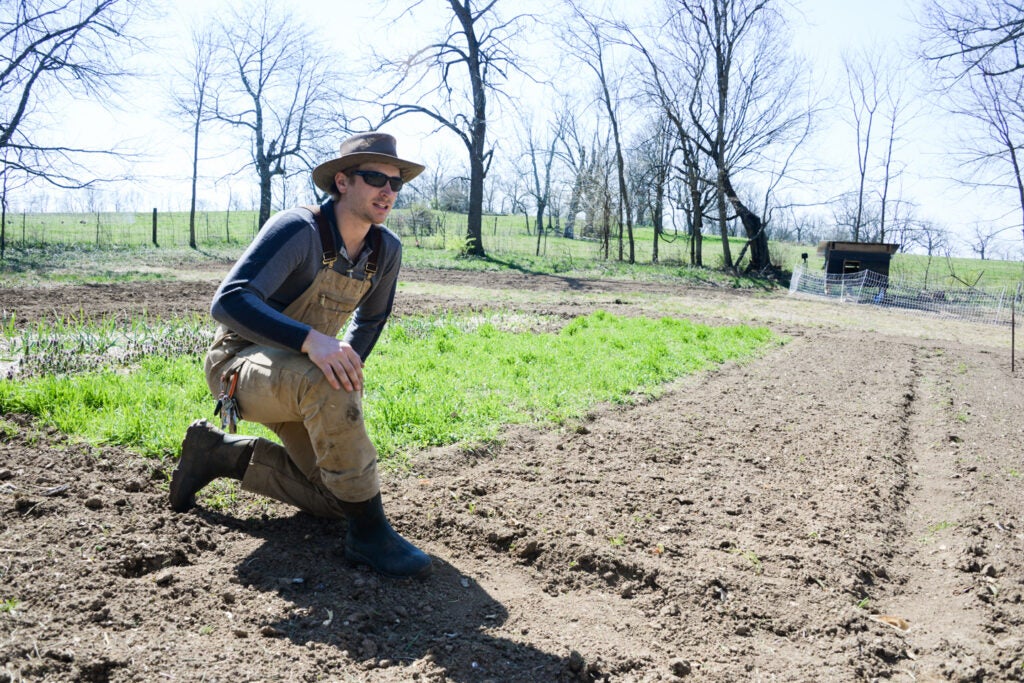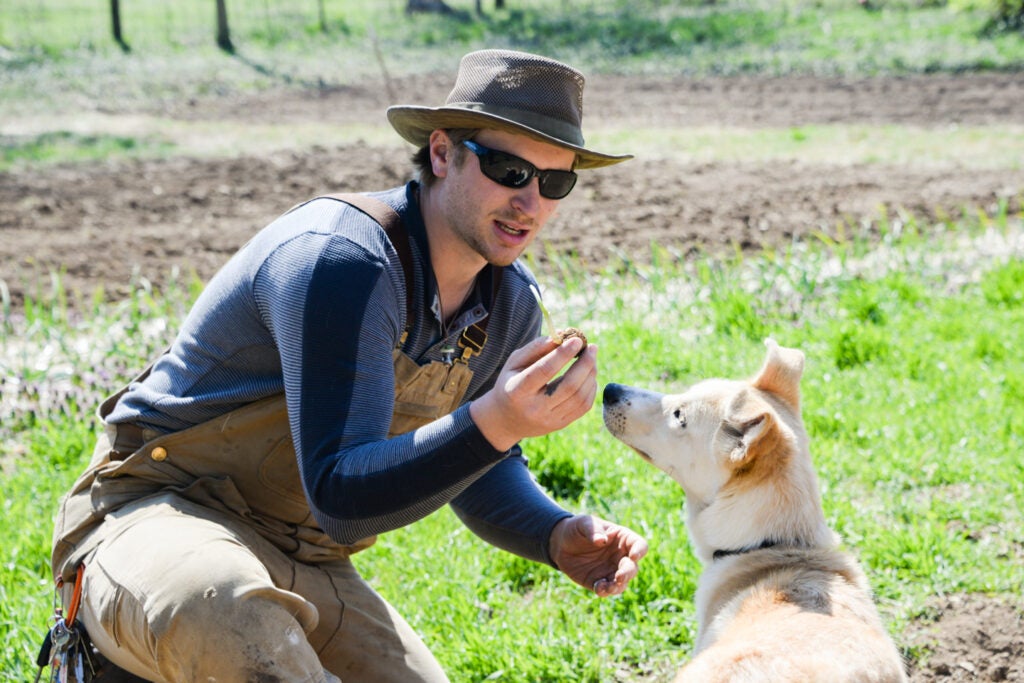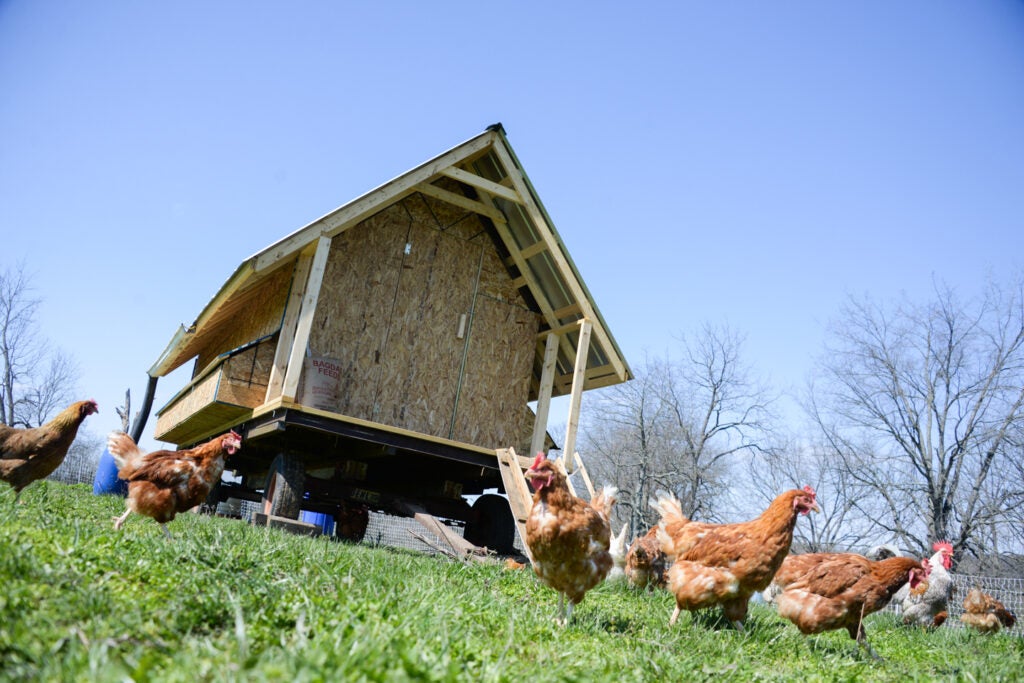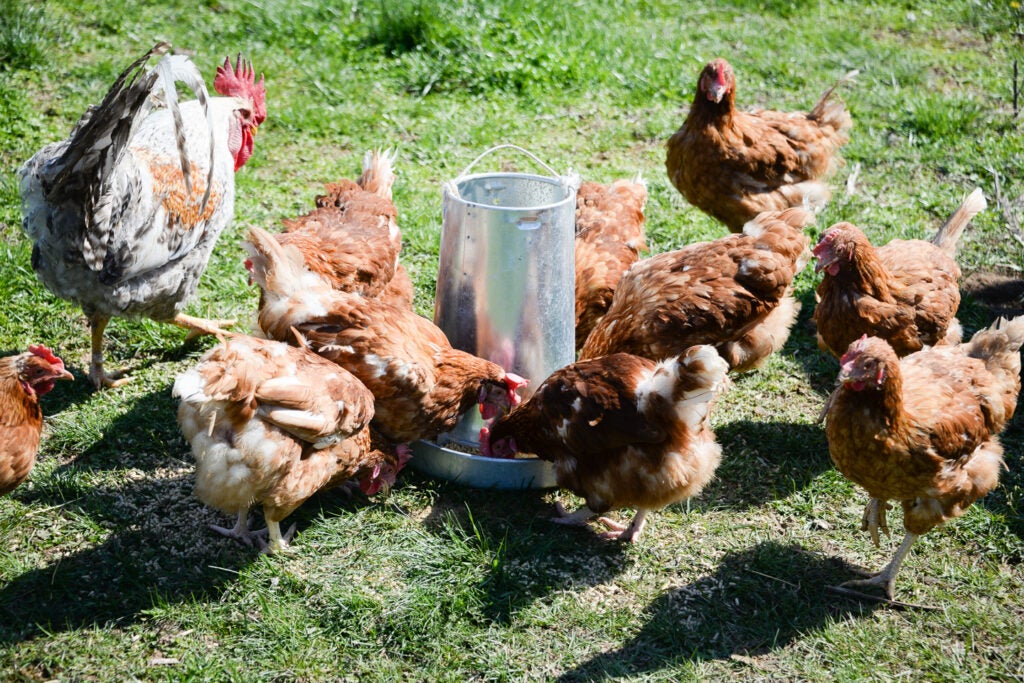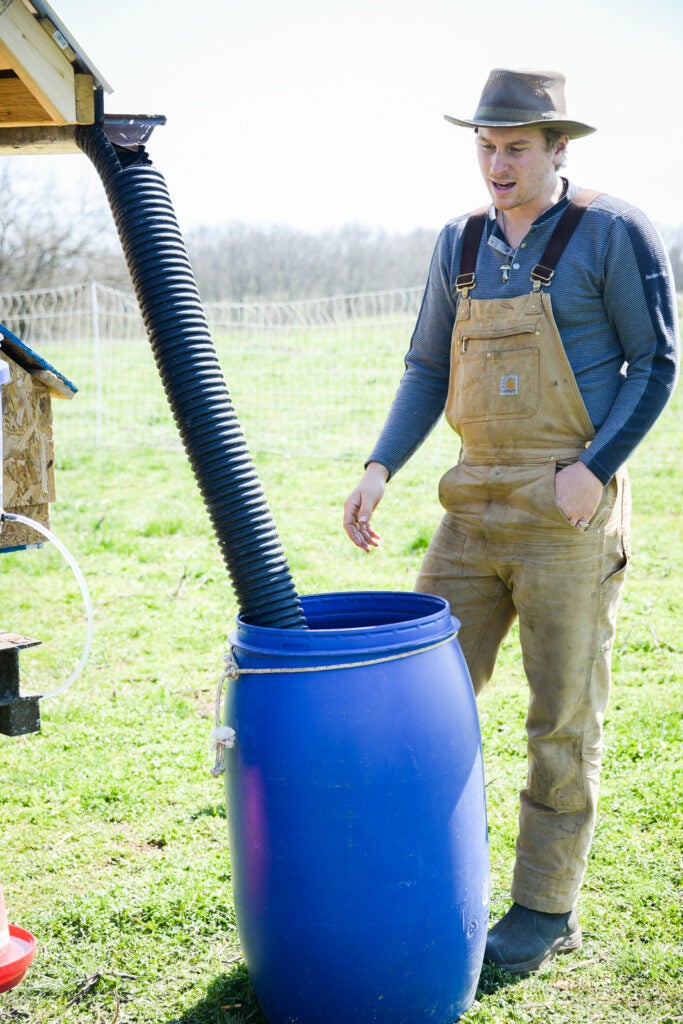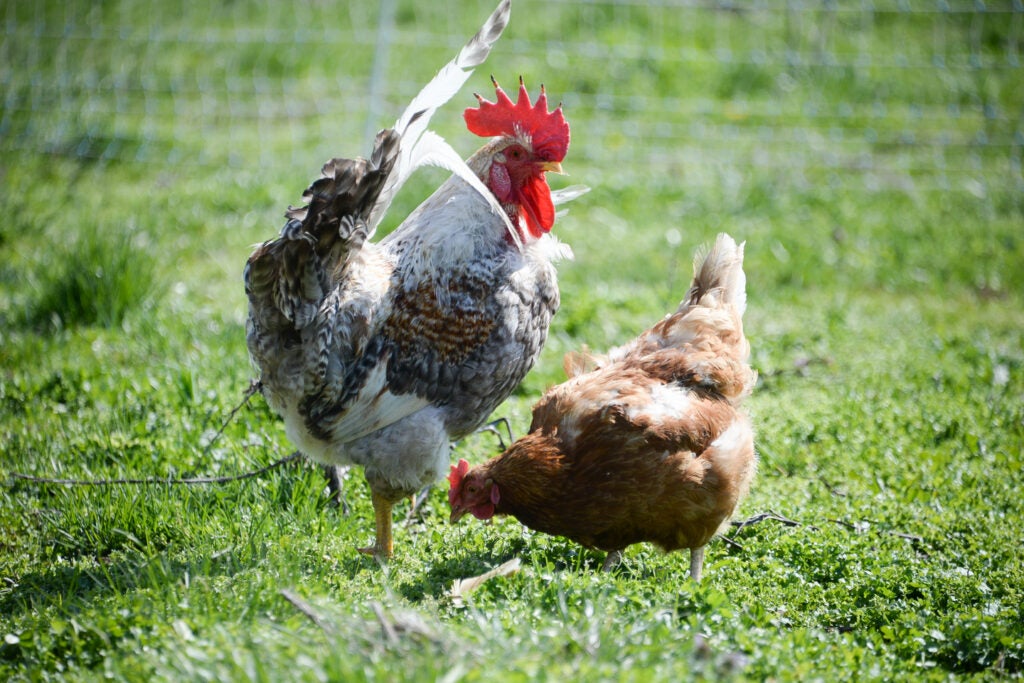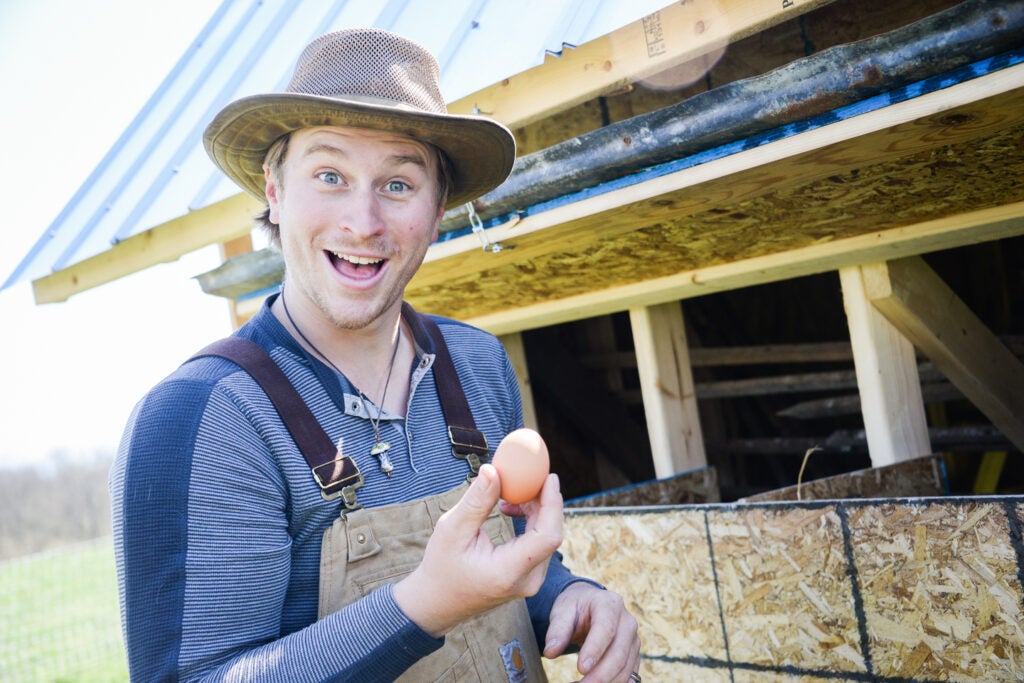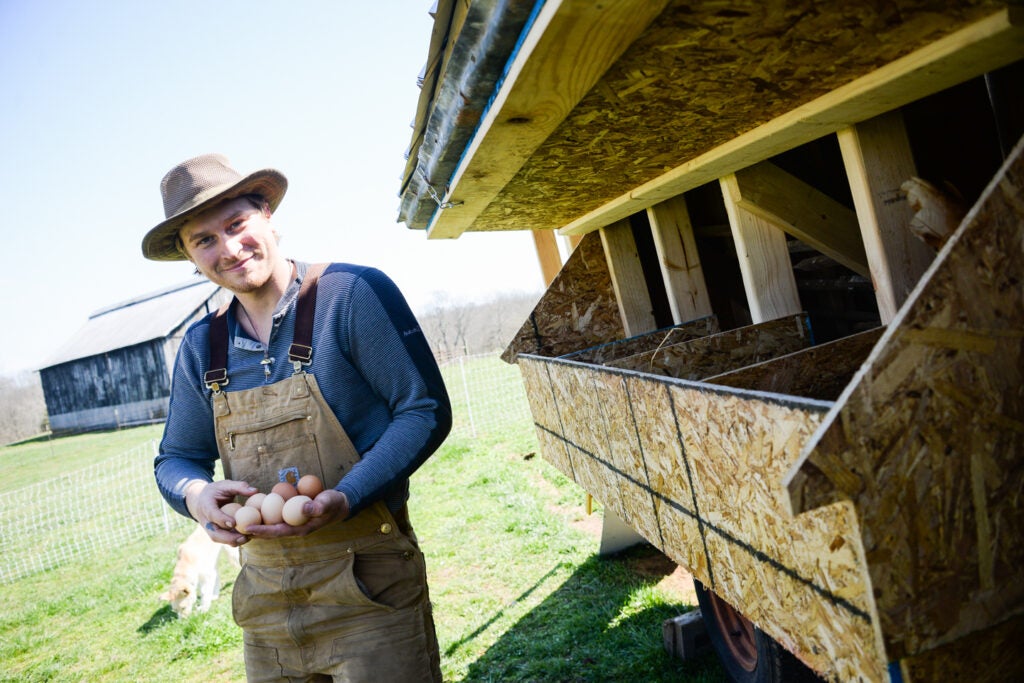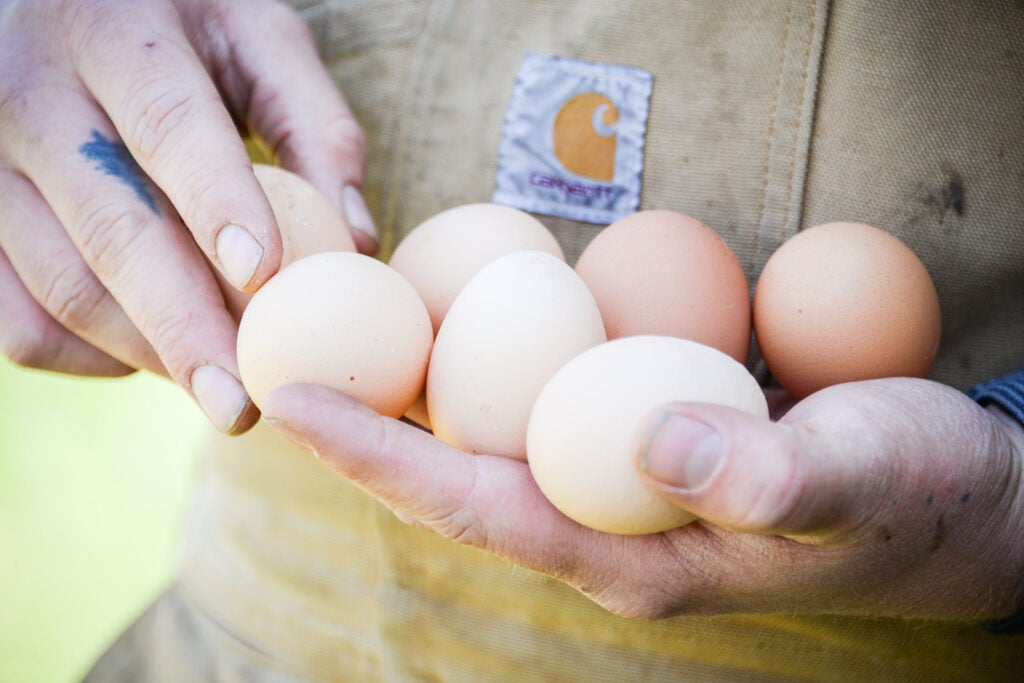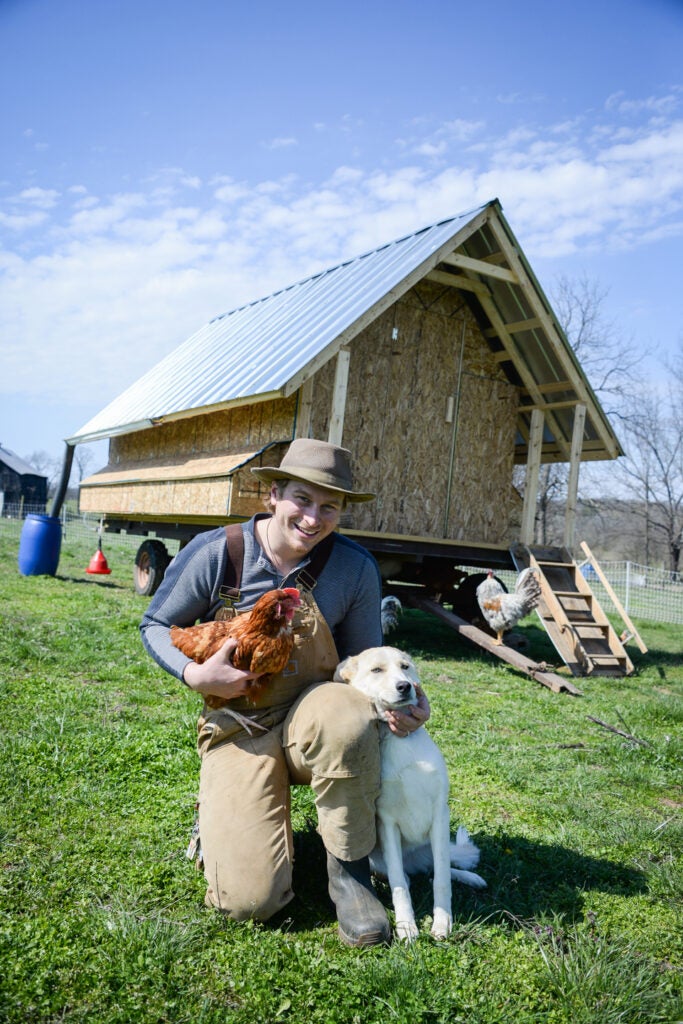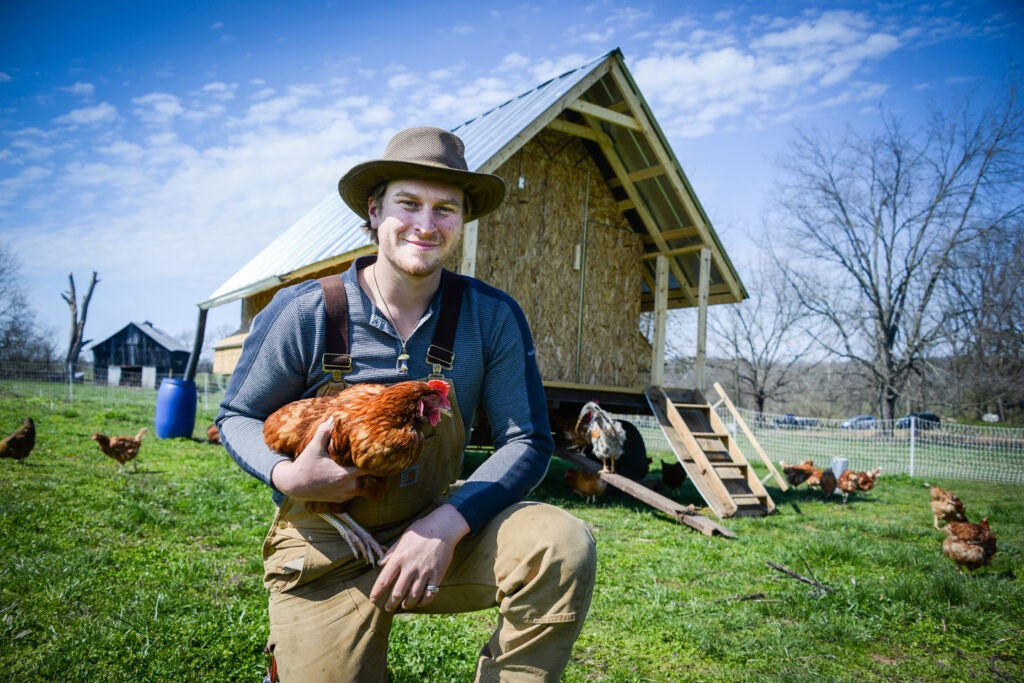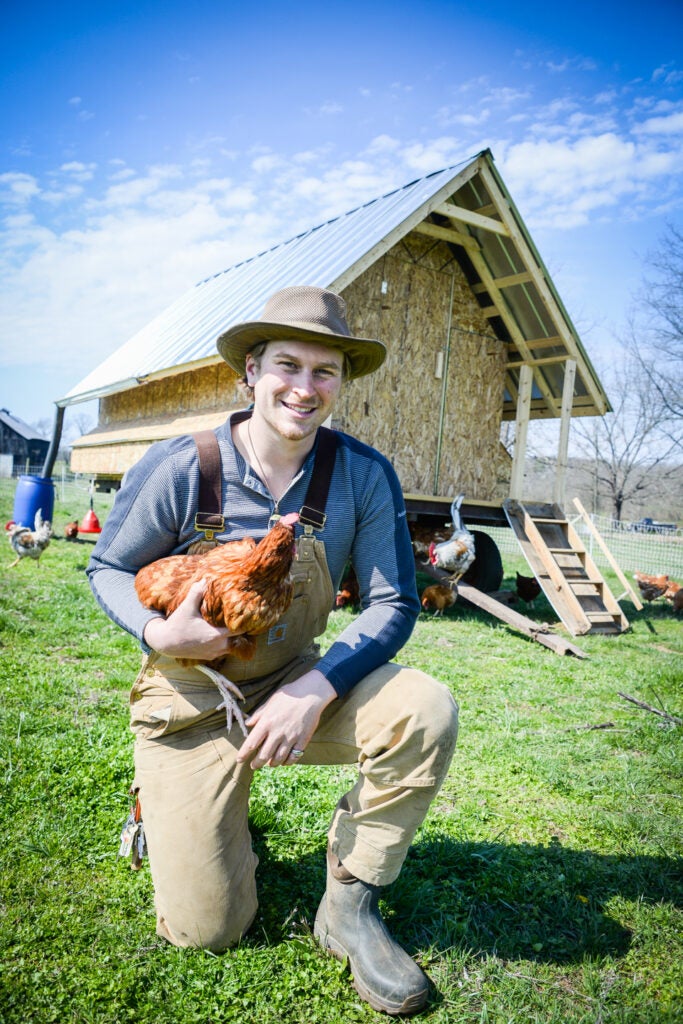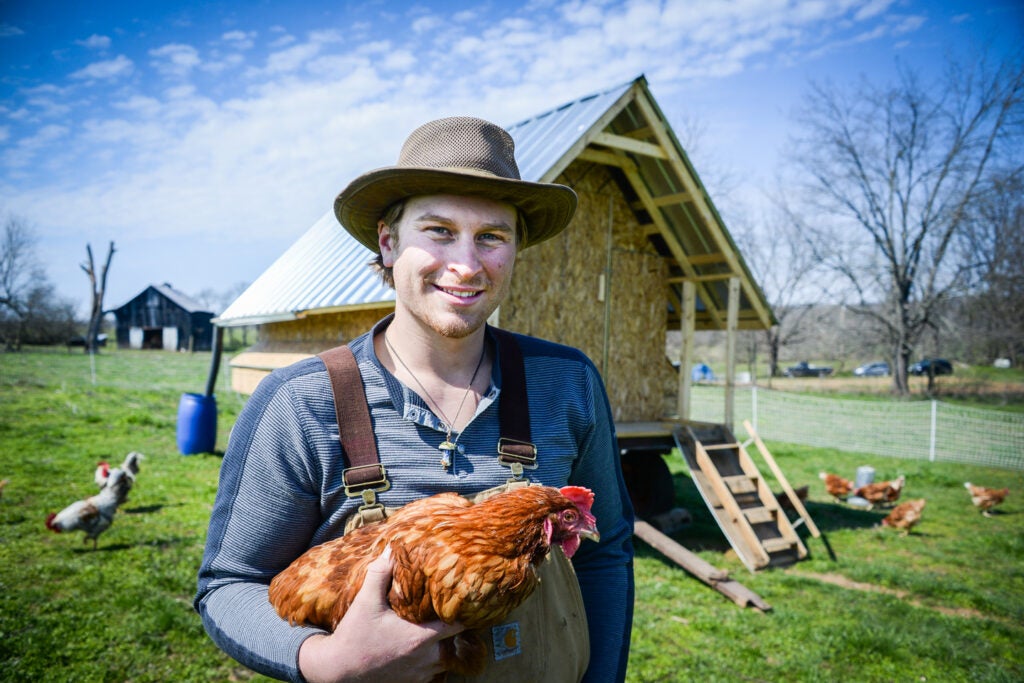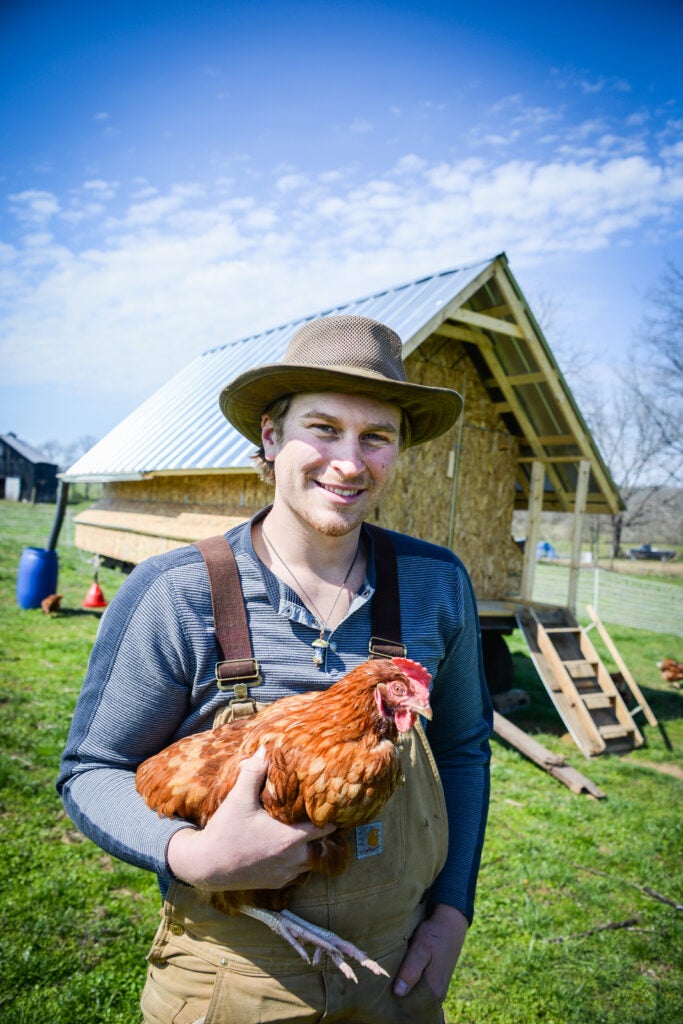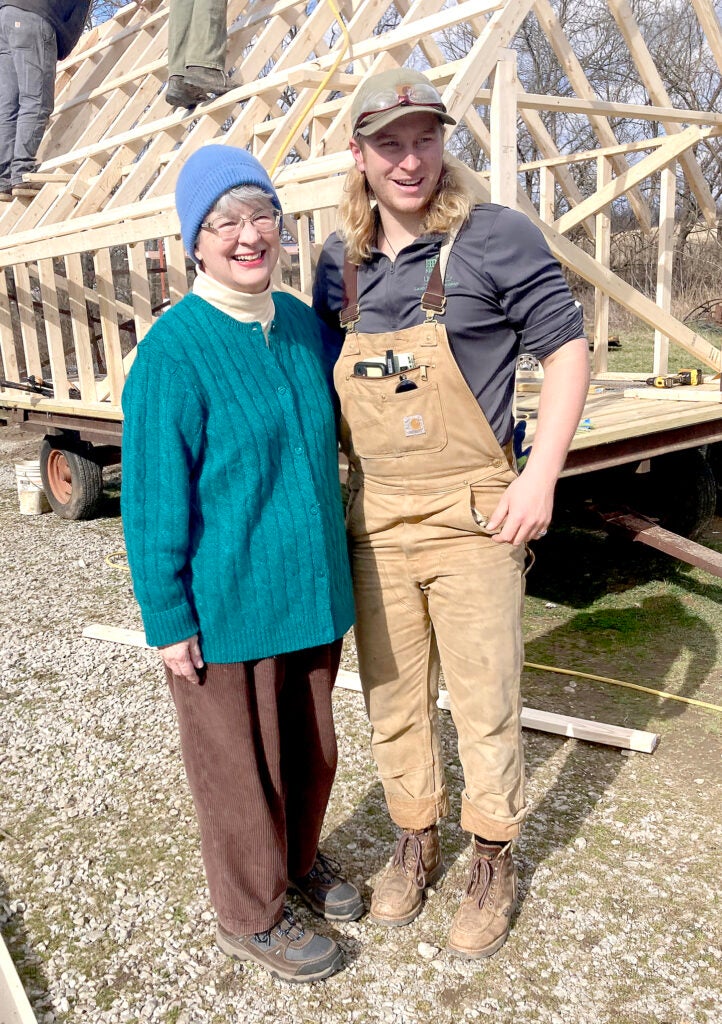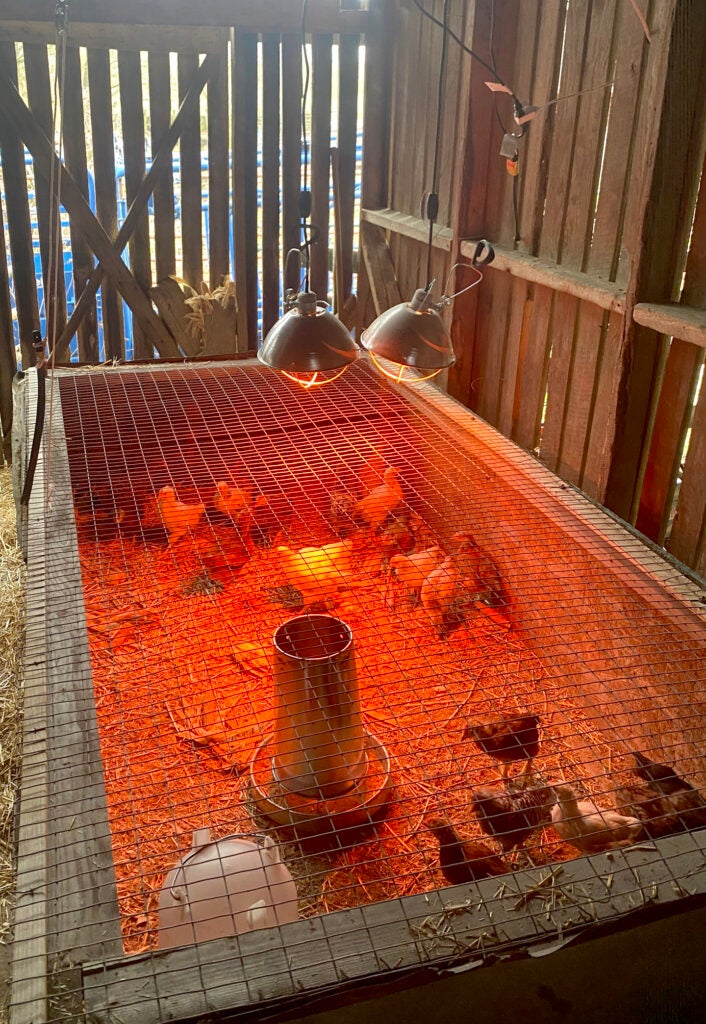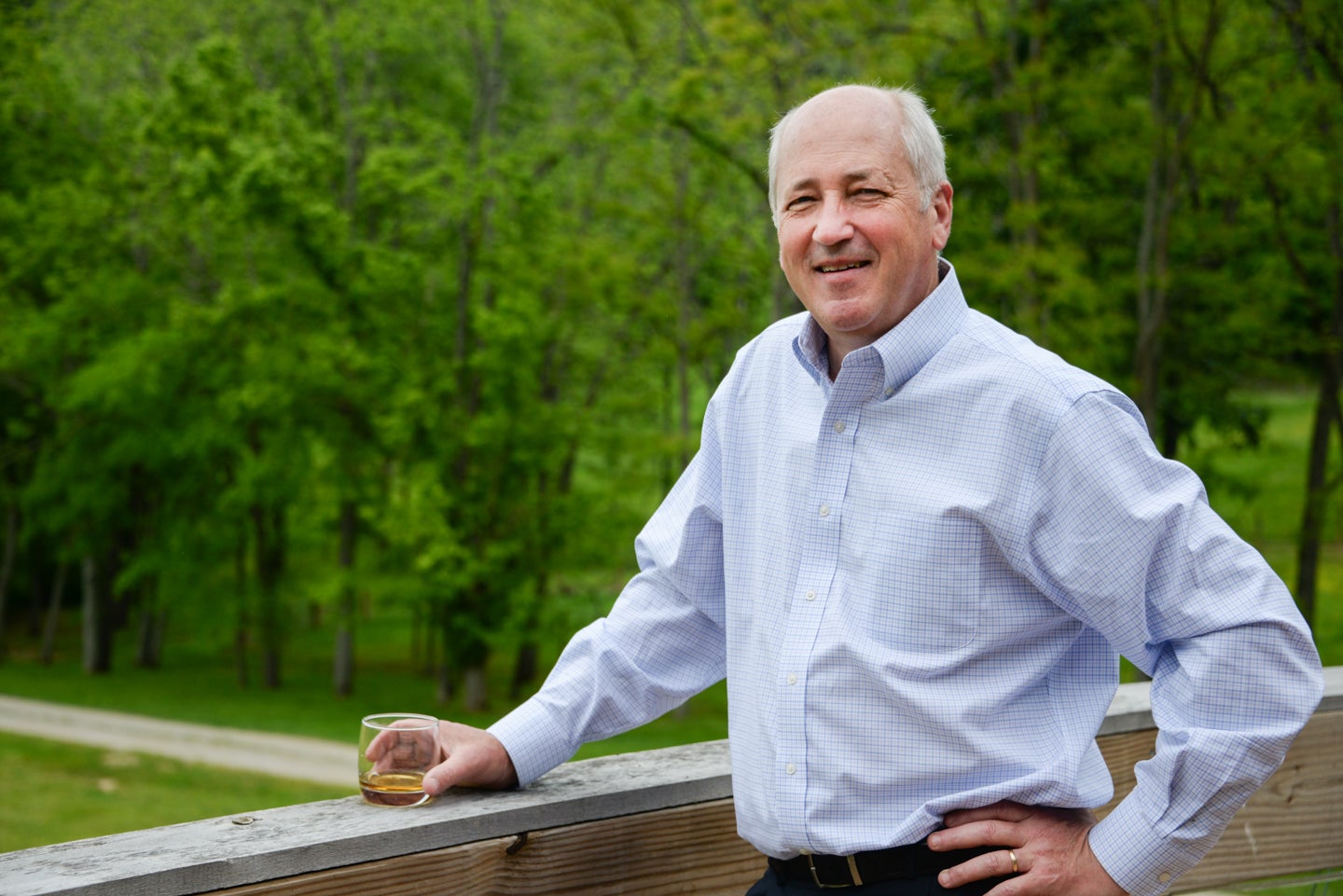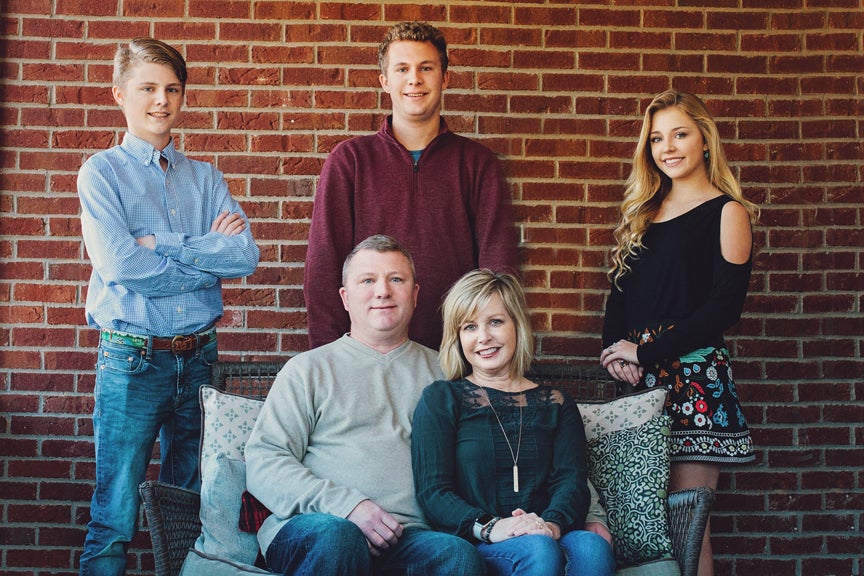Jacob McCowan strode across the farm field, his young dog, Stevie, bounding around beside him. Stevie spotted a butterfly fluttering above and made chase. An easy smile lit up Jacob’s face watching the pureness of the moment. It is clear that he is comfortable on the land and is where he is supposed to be, dirt clinging to his muck boots and clucking chickens circling him.
Jacob, who owns Earthrun Farm, will tell you that he didn’t have an Excel sheet of “what to learn to be a farmer.” He simply sought out experiences and skills that helped him.

“I’ve been working toward being a farmer since before I was in college. My grandparents and their parents farmed. I’ve always liked the outdoors, challenging myself mentally and physically and eating really good food,” Jacob said. “That all points to farming!”
Seeking out skills
His self-training and interests took him to many places where he was ready and willing to soak in the local knowledge. In Massachusetts, Jacob worked on an organic maple syrup farm tapping and harvesting syrup from maple trees. In Alaska, he worked as an intern growing edible mushroom cultures, managing farm greenhouses and foraging for wild mushrooms. In North Carolina, Jacob developed new skills including tanning hides and processing meat, and learned the ways of homesteading and farmsteading.
Jacob knows he still has more to learn. “I’m always learning, trying new things,” he said. “It feels much more empowering when you do it yourself … I have been lucky enough to learn from so many wonderful farmers, foresters and professors over the years. I couldn’t have started this farm without their knowledge and help.”
A farm within a farm
Earthrun Farm consists of four acres on the 336-acre Julian Farm in western Franklin County just half a mile from the city limits. Jacob started the new farm last year and has doubled the size in 2024. “I was working at the Kentucky State University Farm at the time and was eager to do some farming of my own,” he remarked. “I’m so fortunate to be able to farm on Julian Farm.”
Jacob uses traditional methods, as well as some innovative methods to farm. He has constructed a mobile chicken house — aptly named “the egg mobile,” which has several benefits for the farmer, the chicken and the land. “I was able to build the egg mobile because I was graciously awarded a Kentucky State University Small Farm Grant,” Jacob said. “Then, a local couple donated this old haywagon to me. I stripped the top of it off, framed the floor and in a matter of two days we had built the egg mobile. A lot of my family came to help. With farming, I think it’s a lot easier and faster if you have people helping.”
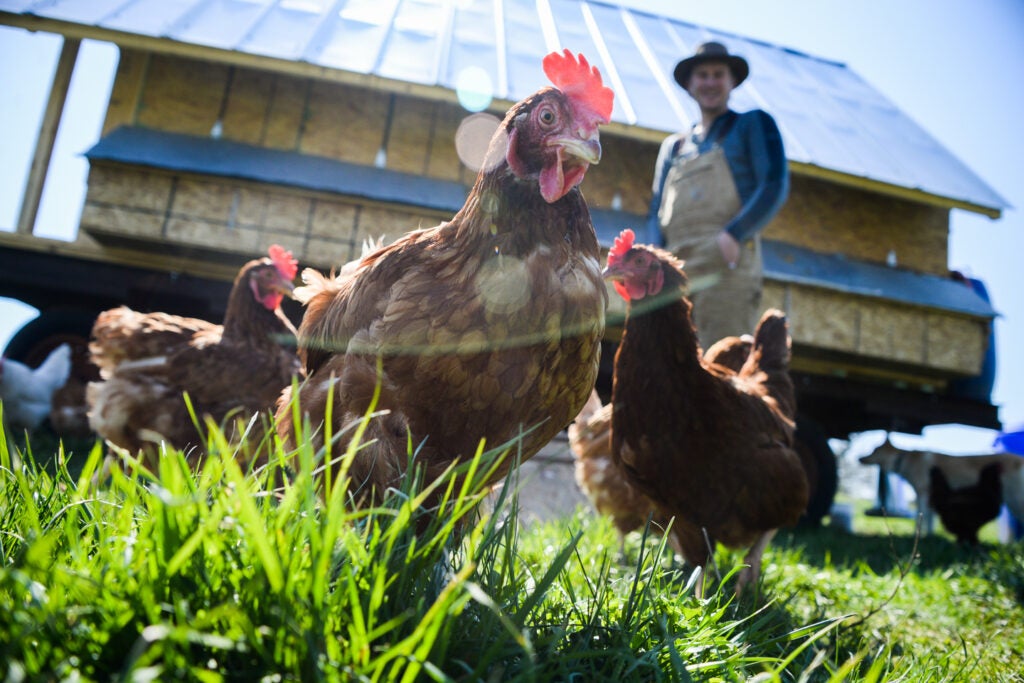
The egg mobile was inspired by two of Jacob’s friends who use a similar method of rotating their chickens through the pasture with a mobile chicken house. “My egg mobile has 22 nesting boxes and a floor that is designed to let the chicken poo fall onto the pasture and nourish the soil with its nitrogen-rich properties. It also has a gutter on one side of the roof to help with water catchment,” Jacob explained.
Jacob moves the egg mobile around the pasture by tractor to give the chickens fresh areas to graze and to fertilize the fields. “We can be intentional about where they graze. The egg mobile even has an automatic door with a light sensor. The door allows me not to have to come out here at the crack of dawn if I don’t want to. When it senses light, it will open and out come the chickens. When dark, it closes. It’s so strange how the chickens know when to come in.”
The 34 lucky egg-laying chickens and two roosters have their own little community, which is protected by a solar-energized fence that, according to Jacob, is more about keeping the predators out.
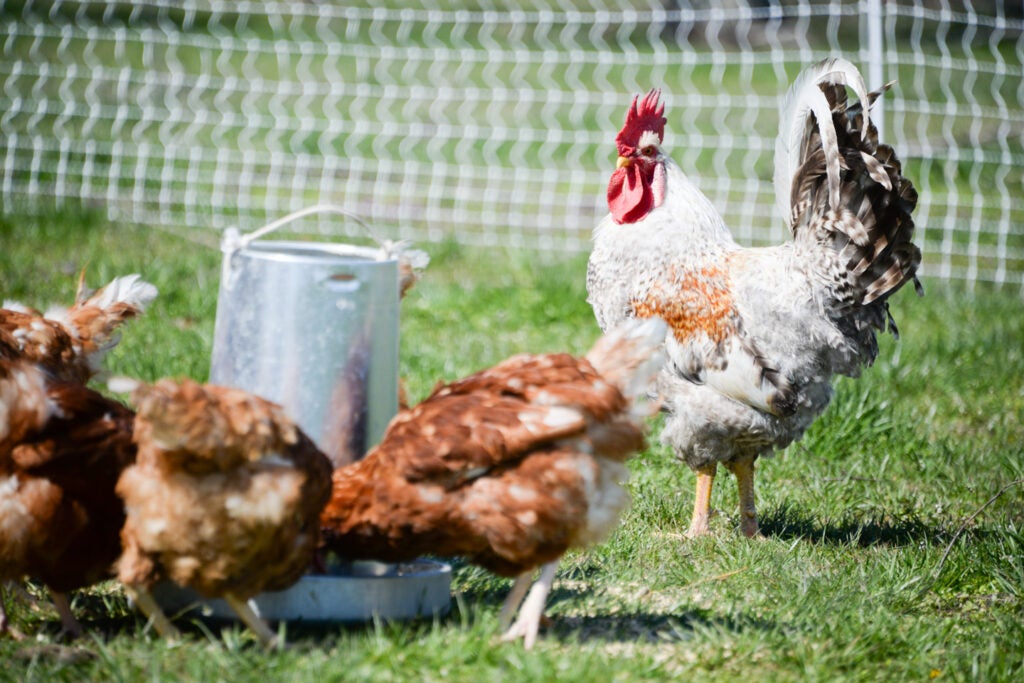
Another 30 young birds are separated inside the egg mobile to keep them safe from being “bullied” by the other chickens until they are fully grown and then introduced to the others.
This year, Earthrun Farm is selling pasture-raised chicken, eggs and vegetables at the Franklin County Farmers Market, Locals Food Hub and Pizza Pub and through Earthrun’s social media. “I also do an egg subscription for folks in the local community to sign up and receive farm fresh eggs at their convenience,” Jacob said.
“Being able to lighten my negative impact and actually benefit the ecosystem in which I farm, is the goal for me. I use local non-GMO feed from Bagdad Roller Mills for all of my poultry. It’s important to me that what goes on the plate of my customers has been nourished by a healthy and ideal environment.
“Oh, and most people aren’t happy that this is the year of the cicada but, a cicada is a food delicacy to a chicken! Anyone who wants to rake up their cicadas and put them in a bag on their porch, I’ll gladly come and pick them up.” Jacob remarked, smiling. “Also, I don’t spray chemicals in my garden and I use sustainable permaculture methods as much as possible …”
A lasting legacy
While Jacob has his small farm, he also works as the farm manager for Julian Farm.
Julian Farm, owned by Jane Julian, is listed on the National Register of Historic Spaces. The farm has been in the Julian family for more than 200 years.
“I’ve lived on my family farm for most of my life, and I always knew I had to save the farm to benefit future generations of farmers and my wider community,” Jane said. “Accordingly, my mother and I began decades ago to protect the farm and to save the land. My mother died in 2012, and since then, I have worked to transition the farm into a future wherein the farm can be put to its highest and best uses.”
The front 42 acres were established as a state nature preserve more than 20 years ago because of its history as a bluegrass savannah that was once trod by bison. Jane Julian, owner of the Julian Farm, is working to continue the family’s legacy as stewards of the land. She has formed a non-profit, Jane Julian Farm Inc. (JJF Inc.), to carry out the mission.
The non-profit’s purpose is to “[sustain] the land so it may sustain us.” Its aims are to “connect the community to its history, land and culture … by preserving the farm’s culture and history, practicing adaptive and resilient agriculture and land management, and providing education and food for the community.”
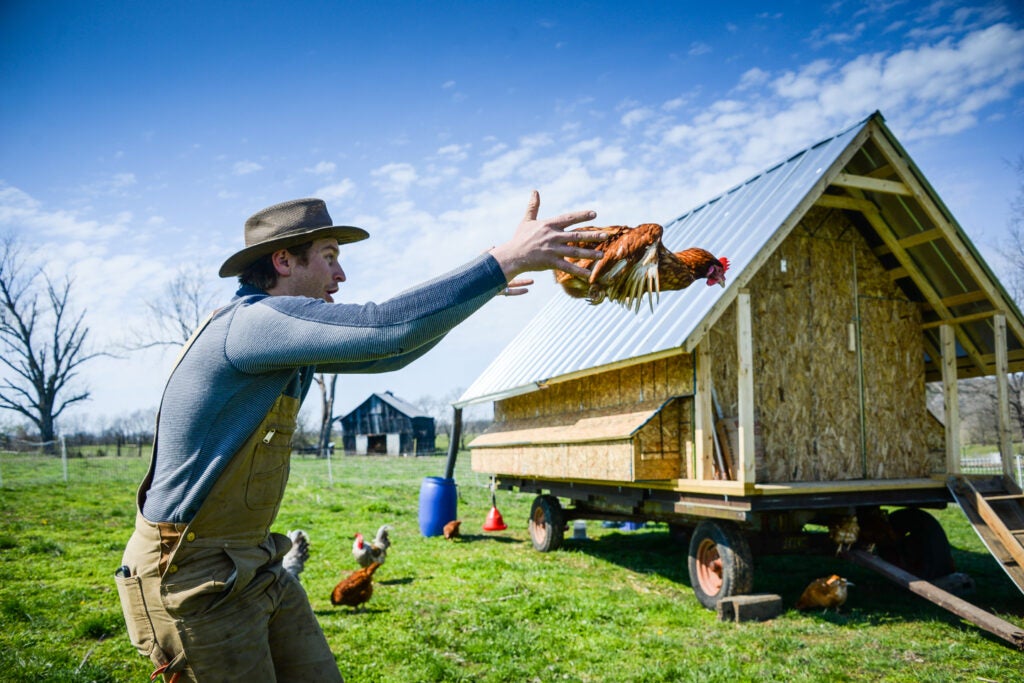
One way that JJF Inc. provides education and food is through a partnership with Frankfort Independent Schools’ Farm to School program. The program uses a small part of the farm to produce butternut squash and sweet potatoes, which are used in the school’s cafeterias. Students are provided the opportunity to experience the farm through field trips.
“This kind of small, local farming, along with educational and historic preservation programs, is exactly what I foresee for the future of my farm, and I am so glad that Jake is here to get the farm going on its path to its highest and best uses,” Jane said.
Jacob loves what he does and moved back to Frankfort to be near family and to help provide a source of healthy food for people in the area.
“Farming to me is a sacred act that I feel makes a huge impact on not only my own personal health but the health of our communities at large,” Jacob said. “I want to make Earthrun Farm an example of sustainable agriculture that supports our local ecosystems and communities.”
For more information on Earthrun Farm, contact Jacob at 859-552-3919 or follow Earthrun Farm on social media. To learn more about JJF Inc., follow Julian Farm on Facebook.
